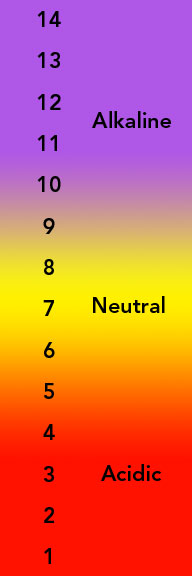 |
Your teeth are building up and breaking down as the acidity level in your mouth changes. The process is called demineralization and remineralization and it affects the health and strength of your teeth and your susceptability to cavities, tooth decay and periodontal disease.
Acidity levels are described in numbers from 1-14 and called pH. The lower the number is, the more acidic the substance is. Water is neutral at 7, as a point of reference.
When the acidity in your mouth drops below 5.5, the bacteria that causes tooth decay and gum disease thrives. Acidity in your mouth creates an environment for sugars and bacteria to damage your teeth.
By making efforts to control the acidity level in your mouth, you can put yourself on a road to better oral health. Be sure to brush your teeth and floss regularly, drink lots of water, and keep in mind these foods and drinks as you choose what you eat.
Acidic foods and drinks to be careful of include soft drinks (including diet soda as it is highly acidic). Watch out for vinegar and fruit juices. Sugars is a common thing to avoid, but the big reason is that bad bacteria in your mouth consumes sugar and creates acid as a byproduct.
Add these to your diet for reduced acidity and stronger teeth: green tea, milk & yogurt (calcium is alkalizing and supports bone growth), apples, strawberries & kiwis (for Vitamin C), pumpkins, carrots, sweet potatoes & broccoli for vitamin C. In general, vegetables are very good for you. You can also help your mouth by drinking plenty of water.
Sipping on drinks and snacking on food are two main culprits when it comes to acidity and tooth decay. The longer your teeth are exposed to sugar in an acidic environment, the greater the likelihood of tooth decay and other oral diseases.
By taking action and avoiding things that make your mouth acidic, you can prevent tooth decay and stave off having to get fillings.
|
